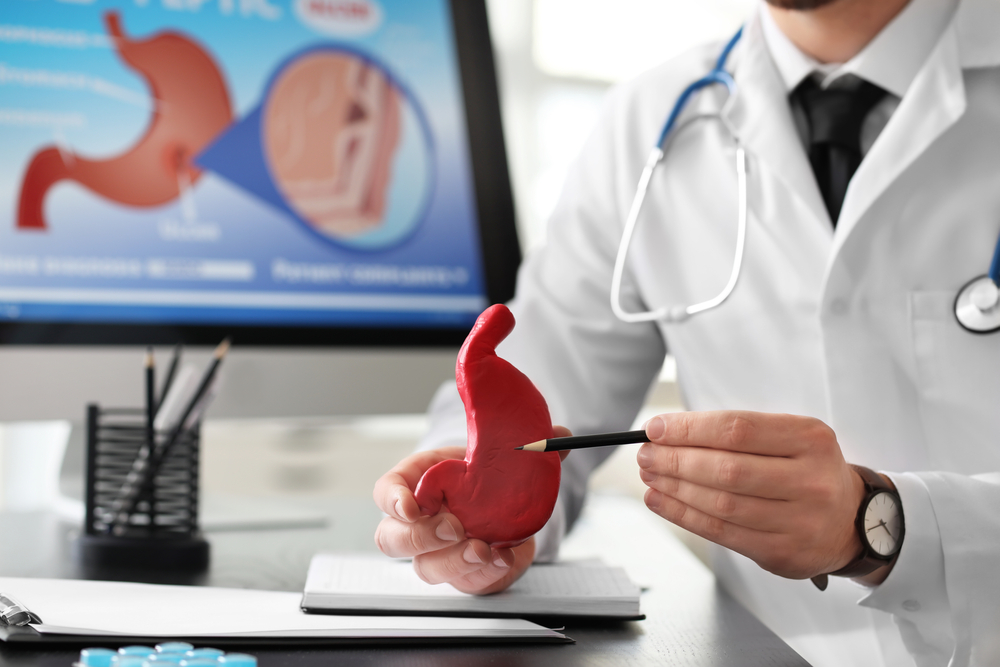5 Reasons You Should See a Gastroenterologist Right Away

Benefits of Seeing a Gastroenterologist
An upset digestive system is one of the most common medical issues that most people face from time to time. Unfortunately, this has made people take digestive issues for granted and delay getting a medical opinion. However, this carelessness can lead to multiple digestive issues later and complications.
Right from the oesophagus to the rectum, you should never ignore the persistent signs and symptoms of an unhealthy digestive system and seek the opinion of the best gastroenterologist near you right away. Early detection of the warning signs helps in the timely detection of any bigger issue and enables you to seek the right gastroenterology treatment.
Here are the top 7 reasons or conditions that require you to see a gastroenterologist immediately:
1. Heartburn
Heartburn, as the name suggests, is the burning sensation in the chest that can also cause pain. Also called acid reflux disease, heartburn occurs when the indigested acids from the food travel back to your throat from the oesophagus. This is a common digestive issue that affects a majority of people in India and yet goes ignored. People take over-the-counter prescription medicines for heartburn without seeing a gastroenterology specialist. This is where the situation can get worse and turn into GERD (Gastro-Oesophageal Reflux Disease) when the heartburn persists and doesn’t get better even after 2 weeks.
GERD is a condition where the stomach acid ends up irritating the oesophageal lining and may lead to ulcers and fungal infections too. Heartburn is a common issue among pregnant women, obese people and smokers. Though GERD can be treated with surgery, untreated GERD can lead to chronic inflammation of the oesophagus and breathing issues.
If you’ve been battling with a chronic or acute heartburn issue and hesitate to seek gastroenterology treatment, it’s time you see the best gastroenterologist near you and start with the appropriate treatment.
2. Inflammatory Bowel Disease
Inflammatory bowel disease is a situation where a person’s immune system mistakes food and other juices present in the digestive tract as germs and ends up attacking the healthy tissue by mistake. IBD is a situation that includes multiple triggers of chronic inflammation of the digestive tract.
In IBD, the small and large intestines become swollen and irritated resulting in uncomfortable symptoms like severe abdominal pain, diarrhoea, rectal bleeding, fatigue, joint pain, and fever. Such symptoms may ease on taking the OTC medicines and may flare again if not treated appropriately.
The two most common types of IBDs are ulcerative colitis and Crohn’s disease. Ulcerative colitis affects the large intestine while Crohn’s disease can afftect the whole digestive tract from mouth to anus. If you have the above IBD symptoms, see the best gastroenterologist in your area and get diagnosed appropriately with a few blood tests, tissue or stool samples, X-rays, and CT scans.
3. Lactose Intolerance
Lactose intolerance is a situation where people develop uncomfortable digestive issues after consuming milk or dairy products. Our body is designed to produce a protein called lactase that helps to break down the dairy products like milk, cheese, and more. When our body is incapable of producing adequate lactase to digest milk products completely, we are diagnosed as lactose intolerant.
Lactose intolerance produces uncomfortable symptoms like bloating, abdominal pain, gas, diarrhoea, and upset digestion when a dairy product is consumed. Such symptoms can range from mild to severe and usually appear within 2-4 hours of consuming lactose. Gastroenterology treatment for lactose intolerance includes dietary supplements and diet modifications with non-dairy, vegan products.
4. Gallstones
Gallstones are small, hard rocks or nuggets that deposit inside the gallbladder and can be single or multiple in number. These stones can be as tiny as a sand grain or as big as a tennis ball. Some people may have just one big gallstone while some may have multiple stones of varying shapes and sizes.
Gallstone symptoms include sudden sharp pain in the right abdominal area, bloating, heaviness in abdomen after meals or dull aching pain in the epigastrium. The reason behind gallstones development is an imbalance in the substances that form bile, a digestive juice that is made by the liver.
Pregnant women and overweight people are highly likely to have gallstones than others. The likelihood of developing gallstones also increases with age and previous history of any stones. Gallstone treatment includes both medication and surgery to remove the gallbladder.
5. Celiac Disease
Celiac disease is a genetic disorder that affects the immune system and flares when the body consumes gluten. For the unversed, gluten is a protein found in wheat, barley, and rye apart from certain medicines and supplements. People affected with celiac disease if consume gluten, their immune system goes for a toss and starts damaging the small intestine causing pain and diarrhoea.
Avoiding gluten and gluten-based products can ease celiac disease symptoms. A gastroenterologist may require you to go for additional treatment to repair the intestinal damage.
If you have any of the above gastroenterological conditions, it is critical that you see the best gastroenterologist near you and seek appropriate gastroenterology treatment before the condition gets critical.






